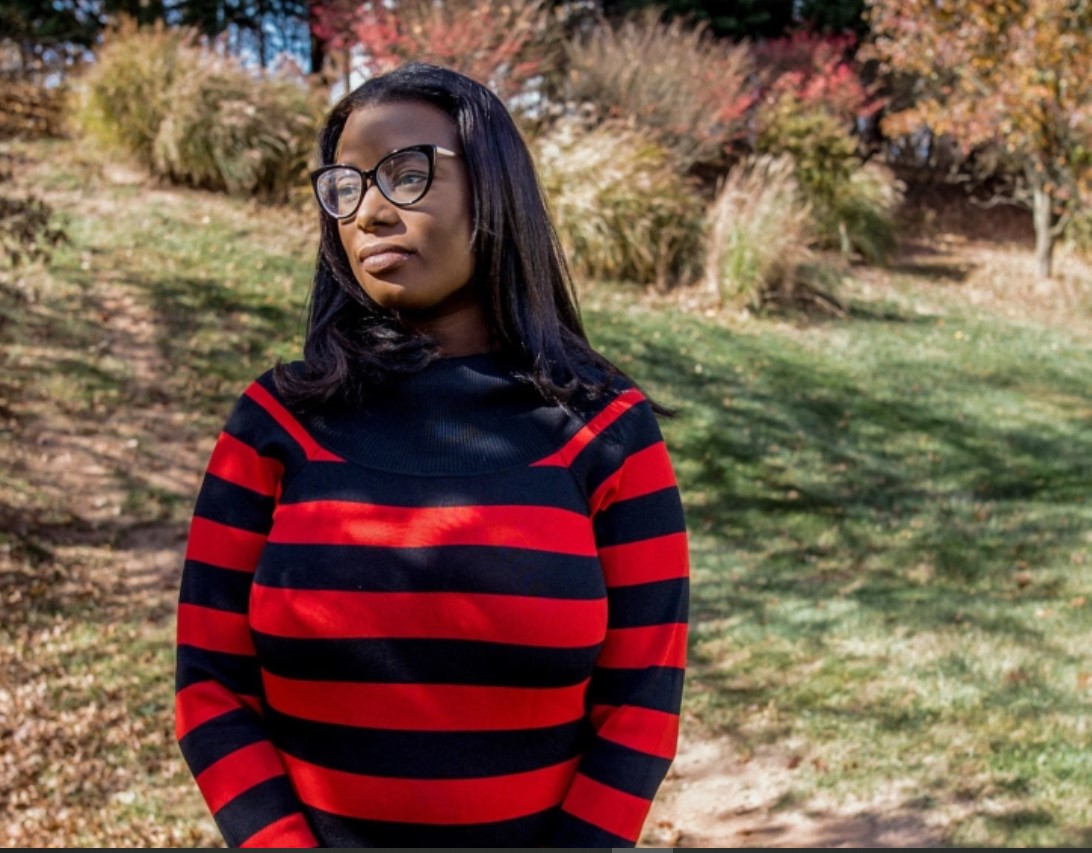
Teonna Woolford has always wanted six kids. Why six?
“I don’t know where that number came from. I just felt like four wasn’t enough,” says Woolford, a Baltimore resident. “Six is a good number.”
Woolford, 31, was born with sickle cell disease. The genetic disorder causes blood cells to become misshapen, which makes it harder for blood to carry oxygen and flow throughout the body. This can lead to strokes, organ damage, and frequent bouts of excruciating pain.
Sickle cell disease affects an estimated 100,000 people in the U.S., and the vast majority of them are Black. Federal and charitable dollars dedicated to fighting sickle cell disease pale in comparison to what is spent to combat other, less common diseases that mostly affect white patients.
Physicians and researchers say the disease is a stark example of the health inequities that pervade the U.S. health system. A poignant expression of this, according to patient advocates, is the silence around the impact that sickle cell disease has on fertility and the lack of reproductive and sexual health care for the young people living with the complex disease.
Woolford’s sickle cell complications have run the gamut. By the time she was 15, her hip joints had become so damaged that she had to have both hips replaced. She depended on frequent blood transfusions to reduce pain episodes and vascular damage, and her liver was failing.
“So many complications, infections, hospitalizations, and so by the time I graduated high school, I just felt defeated [and] depressed,” Woolford shares, speaking from a hospital bed in Baltimore. She had experienced a sickle cell pain crisis a few days earlier and was receiving pain medication and intravenous fluids.
RELATED: Sickle Cell Warrior Writes The Children’s Book She Never Had Growing Up
Learning that she may be infertile
In her late teens, Woolford sought out a bone marrow transplant, a treatment that enables the sickle-shaped cells in the patient’s body to be replaced with healthy cells from a stem cell donor. The procedure comes with risks, and not everyone is eligible. It also relies on finding a compatible donor. But if it works, it can free a person from sickle cell disease forever.
Woolford couldn’t find a perfect match, so she enrolled in a clinical trial in which doctors could use a “half-matched” donor. As part of the bone marrow transplant, patients first receive chemotherapy, which can impair or eliminate fertility. Woolford hesitated. After all, her ideal family included six children.
When she told her doctor about her worry, his response crushed her: “This doctor, he looked at me, and he was like, ‘Well, I’ll be honest, with all the complications you’ve already had from sickle cell, I don’t know why you’re even worried about this process making you infertile because you’re probably already infertile.’”
RELATED: Sickle Cell Warrior on Breaking the Cycle: “Get In The Ring With Us”
How sickle cell affects fertility
Even if patients don’t have the transplant, sickle cell disease can damage their bodies in ways that can affect their ability to have children, according to Dr. Leena Nahata, a pediatric endocrinologist at Nationwide Children’s Hospital in Ohio.
For women, chronic inflammation and the sickling of blood cells in the ovaries can make getting pregnant harder. For men, sickled blood can jam inside the blood vessels of the penis, causing painful, unwanted erections that last for hours. This condition, called priapism, can damage sexual function and decrease sperm count.
And it’s not just the disease. Researchers are evaluating how some widely used treatments may affect fertility, for example, by decreasing sperm count.
“It remains unclear how that translates directly to fertility outcomes, but at least raises the concern that this may be an issue,” Nahata says. Even more concerning to Nahata were the results of a small study, which she co-authored, that showed some patients were unaware of the many fertility risks related to sickle cell disease.
Woolford says she was 19 and shocked when her doctor told her she was probably already infertile. But no one could be sure, so she held out hope that she might still undergo a procedure to preserve her fertility before having the chemotherapy required for the bone marrow transplant.
From extensive research, she learned that egg freezing could cost more than $10,000 and that her insurance wouldn’t cover it. She couldn’t afford to do it on her own. Woolford wondered whether she could find another way to pay for egg freezing. “So I started looking into financial resources,” she shares. “And I saw all these foundations [that] give away grants. But you had to have a diagnosis of cancer.”
In the end, Woolford had the transplant without freezing her eggs. She said she felt that being cured would “be a fair trade-off to give up my dream of biological children.”
Unfortunately, the partial-match transplant did not work. Woolford’s body rejected it.
“So, here I am,” she says. “I am 30, still have sickle cell disease, and I’m infertile.”
A grim thought sometimes pops into Woolford’s mind: If she had cancer instead of sickle cell disease, her dreams of having biological children might still come true.
A lack of resources for Black patients
The first description of sickle cell disease in medical literature was published over a century ago. Because most sickle cell patients in the U.S. were Black, it quickly became labeled as a “Black disease.” And with that came a legacy of systemic racism that still affects patients today.
Black patients tend to have less social capital and fewer resources, says Dr. Lydia Pecker, a sickle cell disease researcher and an assistant professor of medicine at Johns Hopkins University.
Pecker says that for fertility treatment, the resources available to cancer patients differ starkly from those available to sickle cell patients. “There are any number of foundations, large and small, that help support and pay for fertility preservation for people with cancer,” Pecker notes. “Those foundations actually work with fertility preservation centers to negotiate lower rates for affected people.”
Clear clinical guidelines state that children who have cancer and are going through chemotherapy should be referred for fertility preservation.
Children with sickle cell disease going through transplants are exposed to chemotherapy, too, “but we don’t really have guidelines like that yet for people with sickle cell disease,” Pecker shares.
It’s not a perfect comparison, she adds, because the kinds of chemotherapy drugs used in pediatric cancer are different from the chemotherapies used in sickle cell treatment. But fertility preservation can be crucial when there is any risk of treatment-associated fertility impairment, Pecker says. Without clear and widely adopted clinical guidelines, sickle cell patients may not be referred to appropriate care.
Pecker says current medical practice forces sickle cell patients to make a difficult choice. “You can have treatment or you can have fertility,” she shares. But in cancer care, she says, the thought is: You can have treatment and you can have fertility.
In the U.S., health insurance coverage for fertility preservation and treatment is not guaranteed and varies from state to state. Only 12 states have laws that mandate fertility preservation coverage for patients who undergo treatments that could imperil their ability to have biological children, usually referred to as iatrogenic treatments, like chemotherapy or radiation.
After Woolford’s transplant failed, the disease continued its assault on her body. And Woolford has had to come to terms with the impossibility of ever having a biological child. She launched a nonprofit, the Sickle Cell Reproductive Health Education Directive, to raise awareness of fertility issues at medical conferences and among patients. A future goal is to provide financial grants to sickle cell patients struggling to pay for fertility preservation and treatments.
Most days, Woolford finds the work empowering. On other days, she admitted, it reminds her of the bleak reality that she will probably never conceive a child.
“It’s really hard because I don’t think a lot of people realize that I’m fighting for something that I didn’t have access to,” she shares.
At this point, she says, it’s no longer a medical justice fight. It’s a reproductive justice one.









